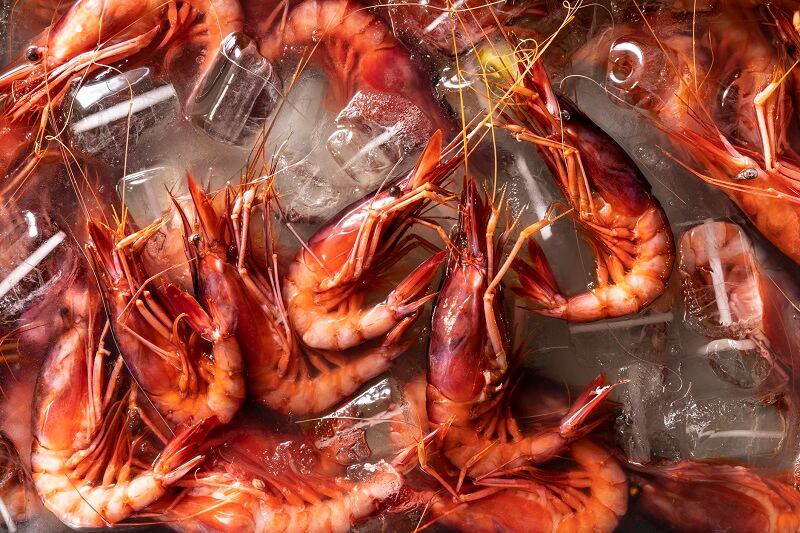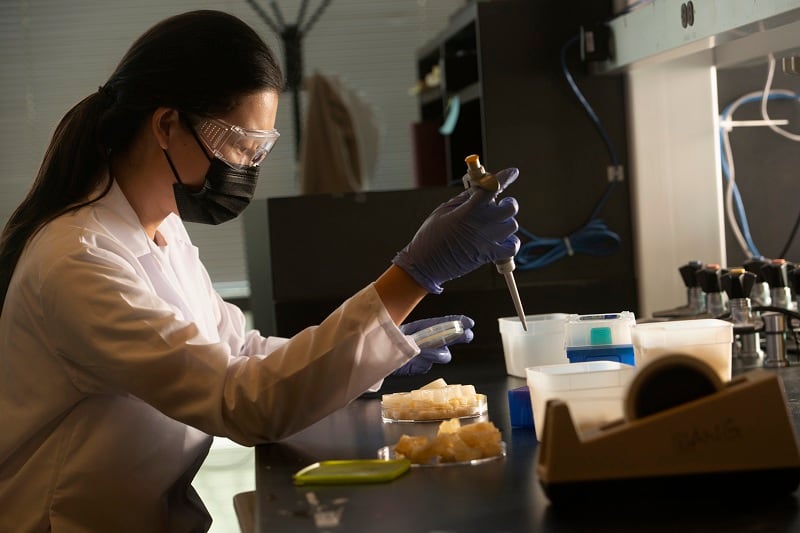The plastic-free reusable ‘jelly ice cubes’ do not melt, are compostable and anti-microbial, and prevent cross-contamination, the scientists state.
“When ice melts, it’s not reusable,” said Gang Sun, a professor in the Department of Biological and Agricultural Engineering. “We thought we could make a so-called solid ice to serve as a cooling medium and be reusable.”
The cooling cubes contain more than 90% water and other components to retain and stabilize the structure. They are soft to the touch like a gelatine dessert and change colour depending on temperature.
The cubes can be designed or cut to any shape and size needed, said Jiahan Zou, a Ph.D. graduate student who has been working on the project the past two years.
“You can use it for 13 hours for cooling, collect it, rinse it with water and put it in the freezer to freeze again for the next use,” Sun added.
A patent for the design and concept was filed in July and the researchers hope to eventually use recycled agriculture waste or byproduct as the coolant material.
“We want to make sure this is sustainable,” said Luxin Wang, an associate professor in the Department of Food Science and Technology.

Water-saving technology
Wang was inspired to create re-usable ice cubes after she saw the amount of ice used at fish-processing plants and the cross-contamination that meltwater could spread among products or down the drain.
“The amount of ice used by these fish-processing sites is massive,” Wang said. “We need to control the pathogens.”
Sun also lamented the mold found in the plastic ice packs used with school lunches for kids and frequently found in shipping packages.
According to the researchers, early tests have shown the cubes can withstand up to 22 pounds without losing form. They can be reused a dozen times — with just a quick wash with water or diluted bleach — and then be disposed.
The scientists added the jelly ice cubes offer an alternative to traditional ice and could potentially reduce water consumption and environmental impact. They also offer stable temperatures to reduce food spoilage and could be ideal for meal prep companies, shipping businesses and food producers who need to keep items cold. Further, the application could potentially reduce water consumption in the food supply chain and food waste by controlling microbial contaminations, they said.




